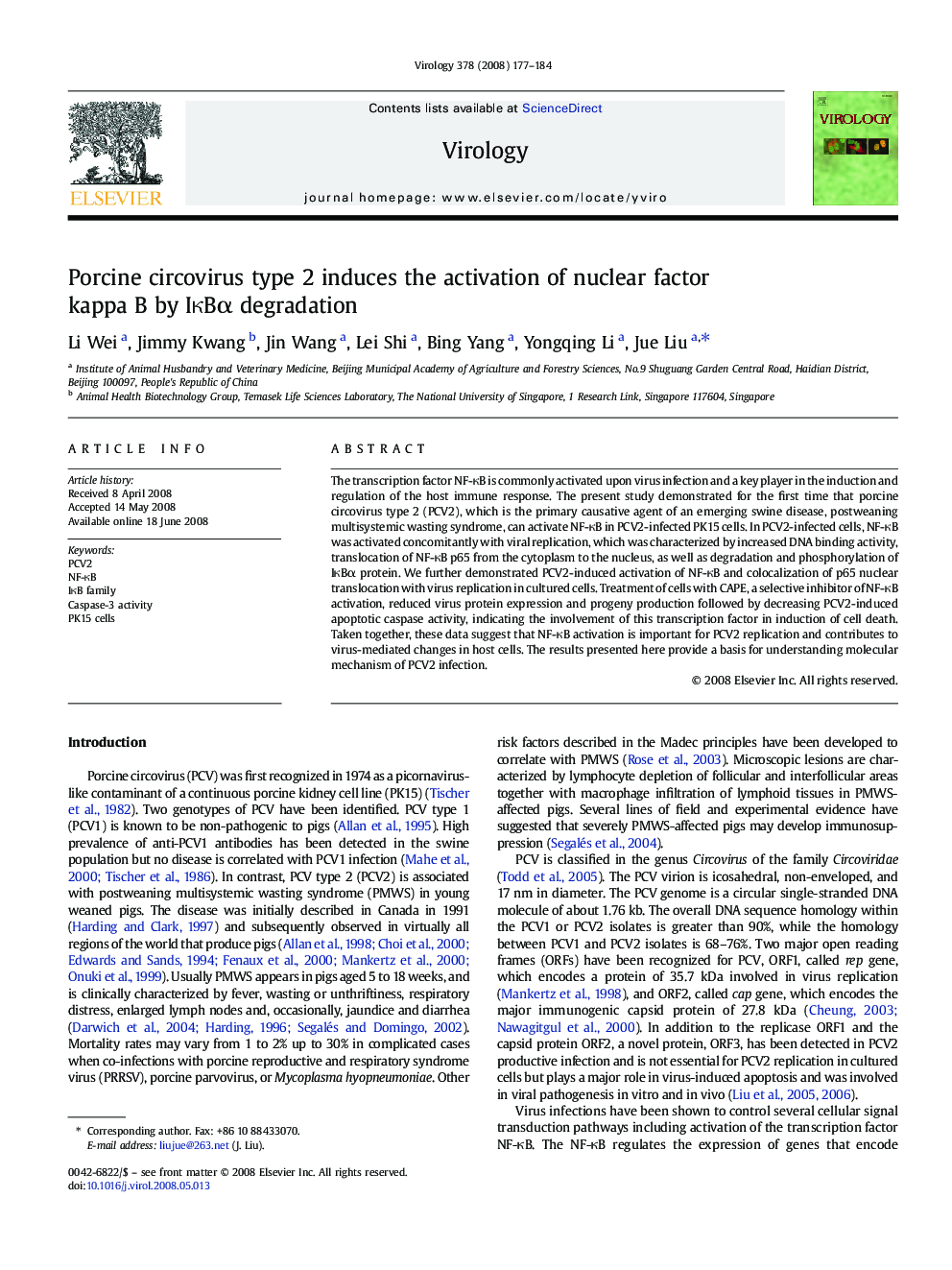| Article ID | Journal | Published Year | Pages | File Type |
|---|---|---|---|---|
| 3425815 | Virology | 2008 | 8 Pages |
The transcription factor NF-κB is commonly activated upon virus infection and a key player in the induction and regulation of the host immune response. The present study demonstrated for the first time that porcine circovirus type 2 (PCV2), which is the primary causative agent of an emerging swine disease, postweaning multisystemic wasting syndrome, can activate NF-κB in PCV2-infected PK15 cells. In PCV2-infected cells, NF-κB was activated concomitantly with viral replication, which was characterized by increased DNA binding activity, translocation of NF-κB p65 from the cytoplasm to the nucleus, as well as degradation and phosphorylation of IκBα protein. We further demonstrated PCV2-induced activation of NF-κB and colocalization of p65 nuclear translocation with virus replication in cultured cells. Treatment of cells with CAPE, a selective inhibitor of NF-κB activation, reduced virus protein expression and progeny production followed by decreasing PCV2-induced apoptotic caspase activity, indicating the involvement of this transcription factor in induction of cell death. Taken together, these data suggest that NF-κB activation is important for PCV2 replication and contributes to virus-mediated changes in host cells. The results presented here provide a basis for understanding molecular mechanism of PCV2 infection.
